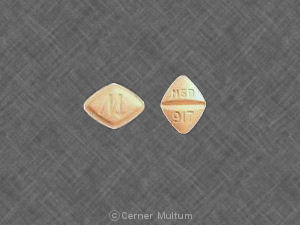Moduretic 5-50 Interactions
There are 512 drugs known to interact with Moduretic 5-50 (amiloride/hydrochlorothiazide), along with 17 disease interactions, and 2 alcohol/food interactions. Of the total drug interactions, 53 are major, 424 are moderate, and 35 are minor.
- View all 512 medications that may interact with Moduretic 5-50
- View Moduretic 5-50 alcohol/food interactions (2)
- View Moduretic 5-50 disease interactions (17)
Most frequently checked interactions
View interaction reports for Moduretic 5-50 (amiloride / hydrochlorothiazide) and the medicines listed below.
- Abilify (aripiprazole)
- Acetylsalicylic Acid (aspirin)
- Actos (pioglitazone)
- allopurinol
- amlodipine
- atenolol
- atorvastatin
- Benicar (olmesartan)
- bisoprolol
- buprenorphine
- carvedilol
- clonazepam
- clonidine
- clopidogrel
- colchicine
- Cosopt (dorzolamide / timolol ophthalmic)
- Crestor (rosuvastatin)
- Cymbalta (duloxetine)
- Lipitor (atorvastatin)
- lisinopril
- metformin
- metoprolol
- omeprazole
- pantoprazole
- Paracetamol (acetaminophen)
- Ritalin (methylphenidate)
- Synthroid (levothyroxine)
- Valium (diazepam)
- Vitamin D3 (cholecalciferol)
- warfarin
Moduretic 5-50 alcohol/food interactions
There are 2 alcohol/food interactions with Moduretic 5-50 (amiloride / hydrochlorothiazide).
Moduretic 5-50 disease interactions
There are 17 disease interactions with Moduretic 5-50 (amiloride / hydrochlorothiazide) which include:
- acidosis
- diabetes
- electrolytes/fluid
- hyperkalemia
- liver disease
- renal dysfunction
- anuria
- electrolyte losses
- liver disease
- lupus erythematosus
- renal function disorders
- asthma
- diabetes
- hyperlipidemia
- hyperparathyroidism
- hyperuricemia
- thyroid function tests
More about Moduretic 5-50 (amiloride / hydrochlorothiazide)
- Moduretic 5-50 consumer information
- Compare alternatives
- Drug images
- Side effects
- Dosage information
- During pregnancy
- Drug class: potassium sparing diuretics with thiazides
Related treatment guides
Drug Interaction Classification
| Highly clinically significant. Avoid combinations; the risk of the interaction outweighs the benefit. | |
| Moderately clinically significant. Usually avoid combinations; use it only under special circumstances. | |
| Minimally clinically significant. Minimize risk; assess risk and consider an alternative drug, take steps to circumvent the interaction risk and/or institute a monitoring plan. | |
| No interaction information available. |
Further information
Always consult your healthcare provider to ensure the information displayed on this page applies to your personal circumstances.


